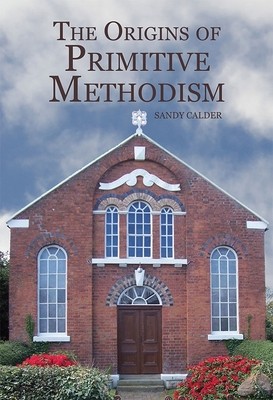
- We will send in 10–14 business days.
- Author: Sandy Calder
- Publisher: Boydell Press
- ISBN-10: 1783270810
- ISBN-13: 9781783270811
- Format: 15.6 x 23.4 x 1.9 cm, hardcover
- Language: English
- SAVE -10% with code: EXTRA
Reviews
Description
The Primitive Methodist Connexion's mature social character may have been working-class, but this did not reflect its social origins.
This book shows that while the Primitive Methodist Connexion's mature social character was working-class, this did not reflect its social origins. It was never the church of the working class, the great majority of whose churchgoers went elsewhere: rather it was the church whose commitment to its emotional witness was increasingly incompatible with middle-class pretensions. Sandy Calder shows that the Primitive Methodist Connexion was a religious movementled by a fairly prosperous elite of middle-class preachers and lay officials appealing to a respectable working-class constituency. This reality has been obscured by the movement's self-image as a persecuted community of humble Christians, an image crafted by Hugh Bourne, and accepted by later historians, whether Methodists with a denominational agenda to promote or scholars in search of working-class radicals. Primitive Methodists exaggerated their hardships and deliberately under-played their social status and financial success. Primitive Methodism in the later nineteenth and early twentieth centuries became the victim of its own founding mythology, because the legend of a community of persecuted outcasts, concealing its actual respectability, deterred potential recruits. SANDY CALDER graduated with a PhD in Religious Studies from the Open University and has previously worked in the private sector.EXTRA 10 % discount with code: EXTRA
The promotion ends in 20d.00:19:54
The discount code is valid when purchasing from 10 €. Discounts do not stack.
- Author: Sandy Calder
- Publisher: Boydell Press
- ISBN-10: 1783270810
- ISBN-13: 9781783270811
- Format: 15.6 x 23.4 x 1.9 cm, hardcover
- Language: English English
The Primitive Methodist Connexion's mature social character may have been working-class, but this did not reflect its social origins.
This book shows that while the Primitive Methodist Connexion's mature social character was working-class, this did not reflect its social origins. It was never the church of the working class, the great majority of whose churchgoers went elsewhere: rather it was the church whose commitment to its emotional witness was increasingly incompatible with middle-class pretensions. Sandy Calder shows that the Primitive Methodist Connexion was a religious movementled by a fairly prosperous elite of middle-class preachers and lay officials appealing to a respectable working-class constituency. This reality has been obscured by the movement's self-image as a persecuted community of humble Christians, an image crafted by Hugh Bourne, and accepted by later historians, whether Methodists with a denominational agenda to promote or scholars in search of working-class radicals. Primitive Methodists exaggerated their hardships and deliberately under-played their social status and financial success. Primitive Methodism in the later nineteenth and early twentieth centuries became the victim of its own founding mythology, because the legend of a community of persecuted outcasts, concealing its actual respectability, deterred potential recruits. SANDY CALDER graduated with a PhD in Religious Studies from the Open University and has previously worked in the private sector.

Reviews